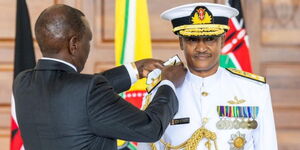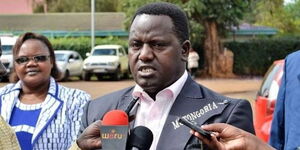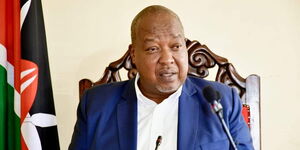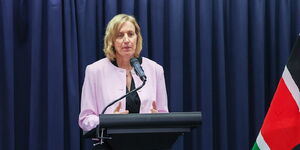President William Ruto has been dealt a huge budget blow after analysts revealed that a new loan from the International Monetary Fund (IMF) could arrive after the 2027 General Elections.
While speaking to Bloomberg, the analysts noted that new reforms proposed by Kenya in seeking the new financing programme would result in prolonged talks and delay the disbursement of funds.
Further, the IMF may require the government to repay part of its existing debt before a substantive new financing programme can be considered, with an agreement unlikely to be reached before the elections.
The government is seeking a new loan to facilitate external debt payments, with talks set to begin between the two parties this month.
Kenya had previously agreed on a four-year, $3.6 billion (Ksh465 billion) IMF programme that expired in April but missed out on a final disbursement of about $850 million (Ksh109.9 billion) after struggling to meet key targets, including reducing its budget deficit and increasing tax revenue.
Any new programme is expected to align with the government’s strategy and policy objectives, which are now centred on reduced borrowing and higher tax predictability.
Ahead of the talks, reports revealed that Kenya requested a governance report from the IMF, and that reform proposals contained therein will likely feature in any agreed programme.
“The first draft of this will be provided to the government at year-end,” noted one analyst who was speaking to Bloomberg. “Programme discussions would most likely only really seriously commence in the second quarter of 2026 at the earliest.”
The analysts opined that they did not expect the new funded programme to be politically acceptable or credible, especially if it was concluded in the run-up to the elections, and warned that Kenya would struggle to stick to its borrowing quotas if an agreement is reached.
Currently, the Treasury under its Cabinet Secretary John Mbadi is focused on securing alternative sources of funding, including selling diaspora bonds, privatising state assets and refinancing existing local and foreign bonds to relieve immediate pressure on the state’s finances.
In terms of borrowing, Mbadi outlined that the government aimed to borrow a total of Ksh923.2 billion, with Ksh287.7 billion from external sources and a whopping Ksh635.5 billion from the domestic market in the current 2025/2026 budget.
The new IMF programme comes amidst global credit ratings agency Moody’s warning that the cost of servicing debts was expected to remain high. It highlighted weak structures in the nation’s revenue generation and an unreliable expenditure structure as key reasons behind the struggles.
Currently, Kenya has a public debt of Ksh11 trillion. Of this, Ksh5 trillion comprises domestic debt, while Ksh5.09 trillion accounts for external debt. Domestic debt largely consists of Treasury Bills and Bonds, whereas external debt is owed to multilateral, bilateral, and commercial creditors.












